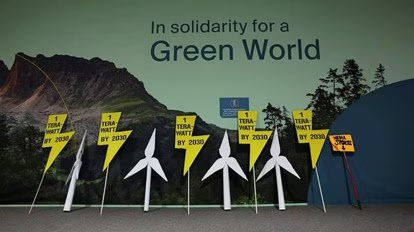India, a key voice in global climate discussions, made a strong case for equitable climate policies at the COP29 summit in Baku. Addressing critical issues like unilateral trade measures and the principles of just transition, India reiterated its commitment to ensuring fairness for developing countries. Environment Secretary Leena Nandan articulated India’s concerns, emphasizing the importance of global equity and inclusive climate action.
India criticized developed countries for imposing unilateral trade measures, such as the EU’s carbon tax on imports. These measures, according to India, shift financial burdens to developing nations, hindering their equitable access to development opportunities. Nandan called for open discussions on these restrictive practices, urging developed nations to adopt cooperative approaches.
Reframing the Concept of Just Transition
While endorsing the principles of just transition, India opposed the prescriptive, top-down methods proposed by some nations. Nandan emphasized that climate action plans, under the Paris Agreement, must remain “nationally determined” and not dictated by external forces. She also linked just transitions to broader socio-economic factors, highlighting the need for a fair distribution of resources and responsibilities.
India’s Call for Global Equity
Addressing Climate Inequities
India emphasized the persistent inequities in global climate discourse. Nandan pointed out the overuse of the global carbon budget by developed countries, calling it a “carbon debt” owed to developing nations. She proposed monetizing this debt to support sustainable development in the Global South.
Promoting Sustainable Lifestyles
In line with agreements at the UN Environmental Assembly, India advocated for promoting sustainable lifestyles worldwide. This approach, Nandan said, would ensure that climate policies respect the choices of citizens in both developed and developing countries.
The Role of Climate Finance in Just Transition
Unmet Financial Commitments
India highlighted the critical role of climate finance as an enabler of just transitions. Developed countries have yet to fulfill their promises of providing adequate financial support, leaving developing nations to bear the brunt of climate adaptation and mitigation costs.
Enhancing International Cooperation
India called for enhanced international cooperation to identify cost-effective and scalable mitigation opportunities. It criticized the uneven progress in global collaboration, urging developed nations to prioritize measurable outcomes over unilateral measures.
BASIC Group’s Push for Equity at COP29
India’s stance resonated with the BASIC (Brazil, South Africa, India, China) group of countries. At the start of COP29, China, on behalf of the group, sought to include the issue of unilateral trade measures in the official agenda. Although this request was deferred, India persisted in its efforts, ensuring the issue remained a focal point of discussions.
Building Trust for a Just Global Transition
India’s proactive engagement at COP29 underscores the need for an equitable approach to global climate policies. By challenging unilateral measures and advocating for broader socio-economic considerations, India aims to foster trust and cooperation among nations. The success of climate action depends on developed countries honoring their commitments and ensuring fairness in the global transition to a low-carbon future.


Leave a Reply